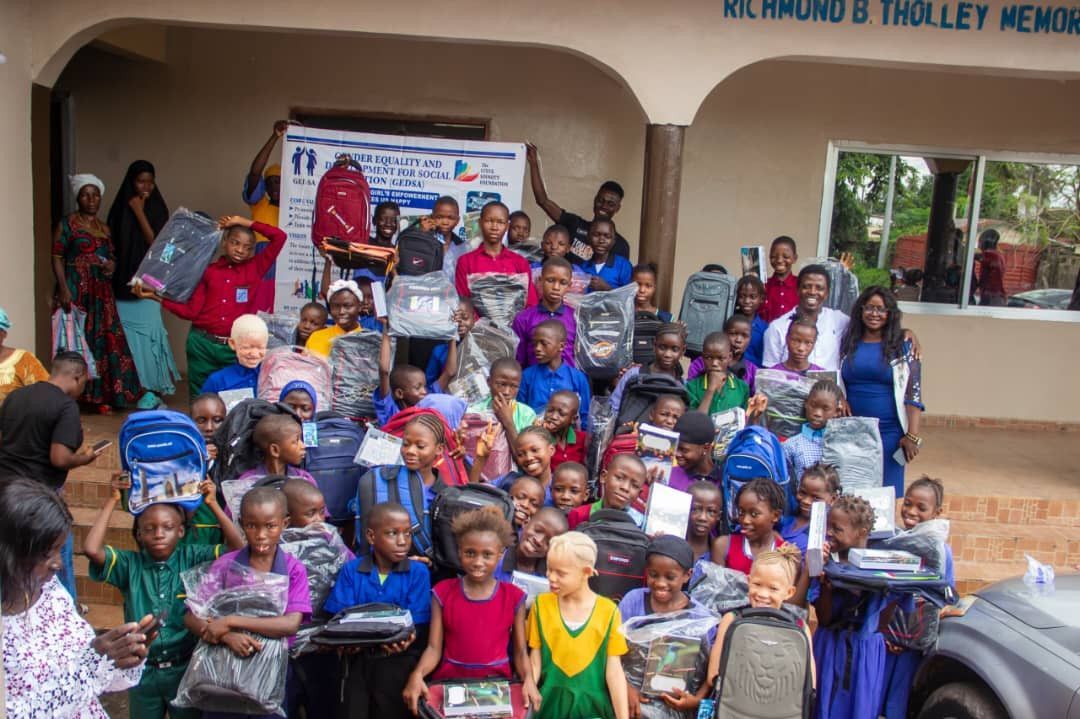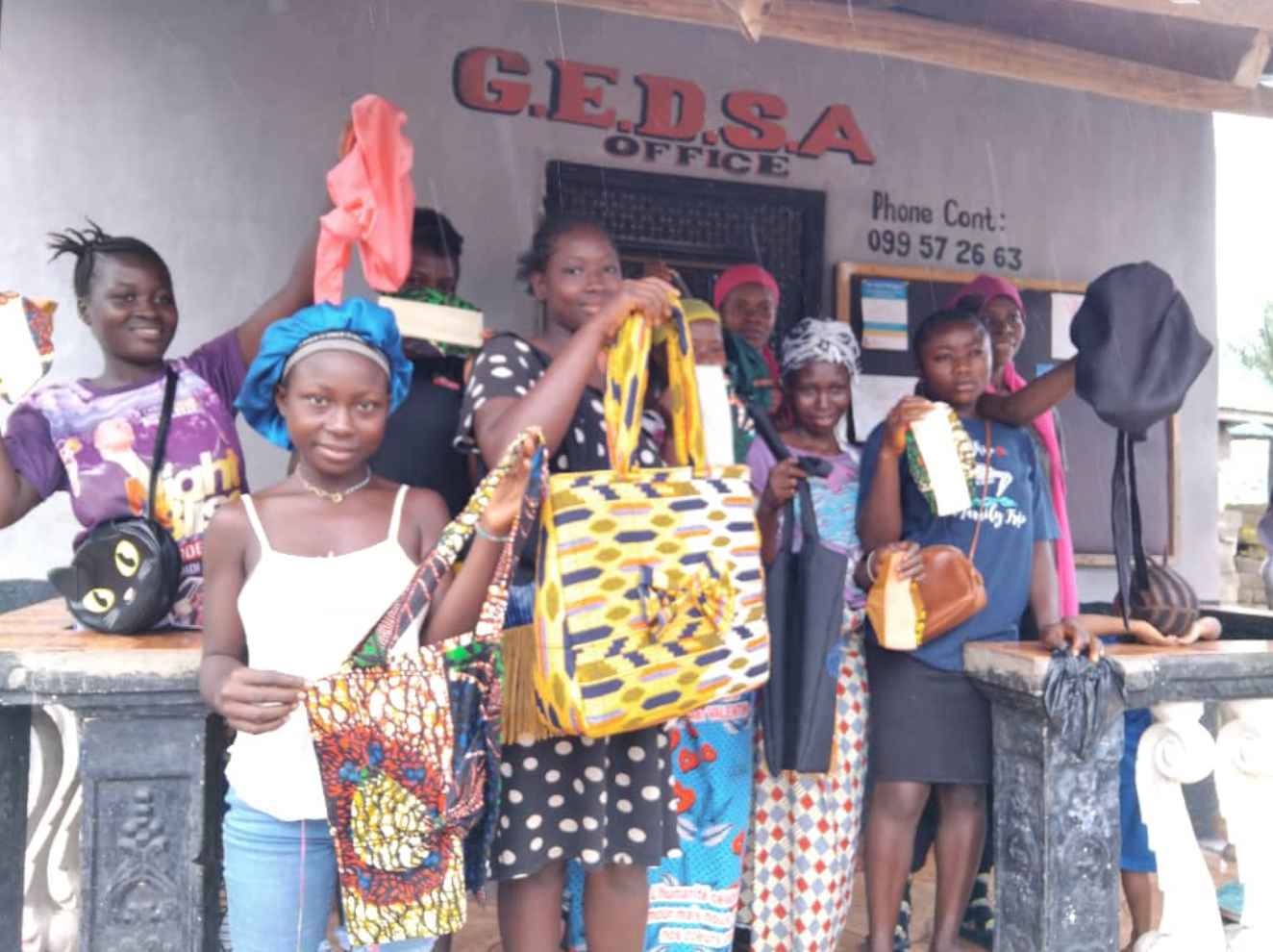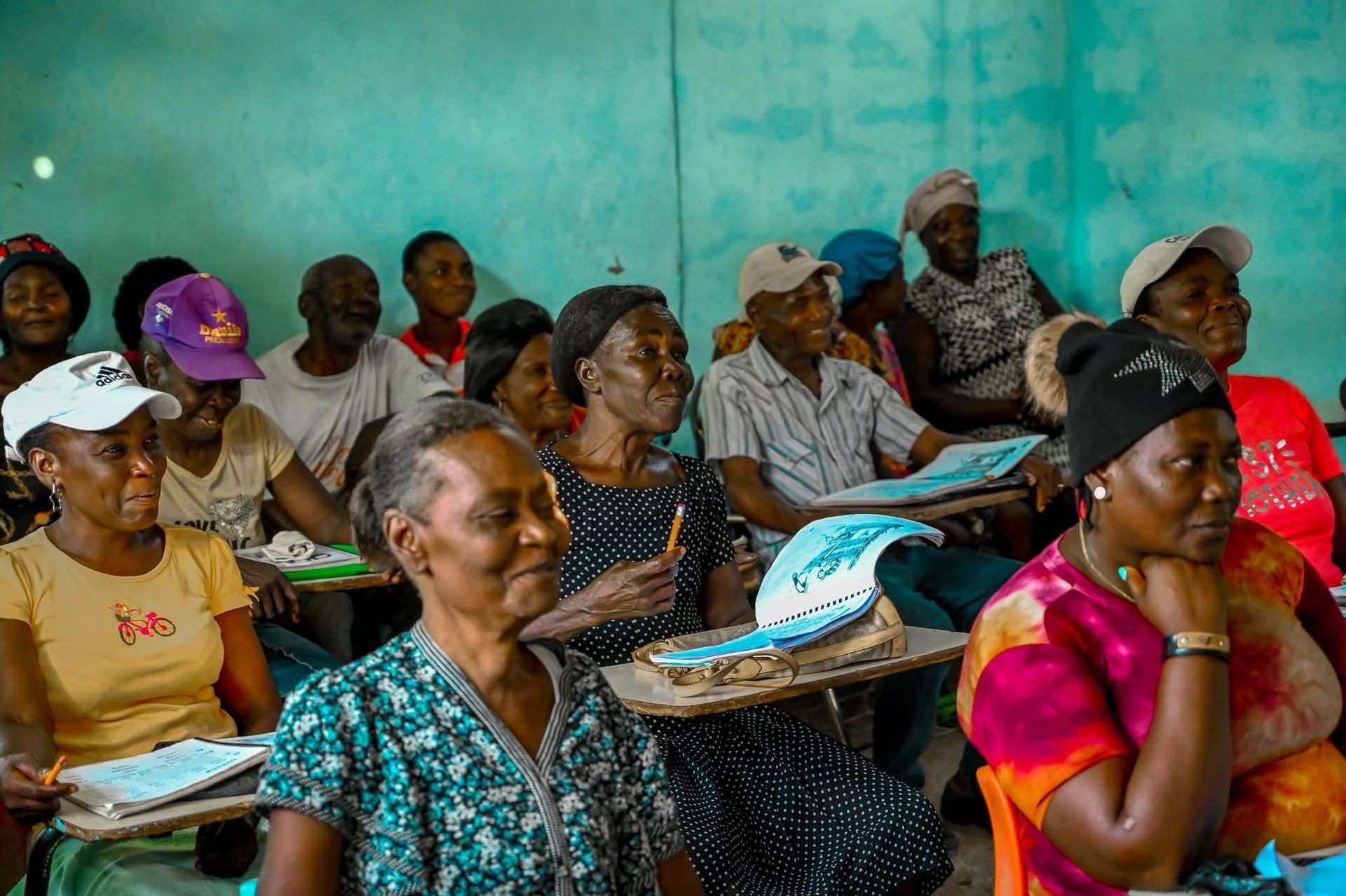Empowering communities through partnership in Sierra Leone
In a world where the challenges of gender equality, climate change, and social injustice loom large, partnerships that prioritize sustainable development and social equality are more crucial than ever. The collaboration between The Steve Sinnott Foundation [SSF] and Gender Equality and Development for Social Action [GEDSA] exemplifies how shared vision and collective action can lead to transformative change in communities. Together we are not just addressing immediate issues, we are laying the groundwork for a brighter and more equitable future. At the heart of our partnership is a commitment to shared learning. By pooling our resources, expertise and experiences, SSF and GEDSA have created a dynamic platform for innovation and growth. This collaboration allows us to tackle complex issues such as school related gender based violence, climate change, and challenges holistically faced by people with disabilities.
Through workshops, community engagement and research initiatives, we have fostered an environment where knowledge is exchanged freely. This shared learning not only enhances our understanding of issues at hand but also empowers local communities to take ownership of the solutions. By equipping individuals with the tools and knowledge they need, we are nurturing a generation of leaders who are committed to driving social change.
One of the flagship projects born from our partnership is positive periods, an initiative aimed at addressing menstrual health and hygiene management in schools. In many communities menstruation remains a taboo subject leading to stigma and misinformation.
This project seeks to break the silence surrounding menstruation, providing education and resources to students, teachers and parents alike. By promoting open conversations about menstrual health, we are not only improving the wellbeing of young girls but also fostering an environment where gender equality thrives. The positive periods initiative has already seen remarkable success, with increased school attendance among girls and a significant reduction in the stigma associated with menstruation in our operational schools and communities. This project is a testament to the power of education and awareness in transforming societal norms.
Climate change is one of the most pressing challenges of our time, disproportionately affecting marginalised communities. Our partnership recognises that addressing climate change requires a multifaceted approach that includes addressing issues such as gender equality and social justice. Through joint initiatives, we are working to empower communities to adapt to climate impacts while promoting sustainable practices, we are ensuring that women and marginalised groups have a voice in decision making processes. Our projects focus on building resilience, promoting sustainable agriculture, and advocating for policies that prioritise the needs of vulnerable populations. This is not only combating climate change but also fostering a sense of community ownership and responsibility.
School related gender- based violence [SRGBV] is a pervasive issue that hinders educational attainment and perpetuates a cycle of inequality. Our partnership has launched targeted interventions to address SRGBV, creating safe and inclusive learning environments for all students. Through training programs for educators, awareness campaigns, and support services for survivors, we are working to eradicate violence in schools. By engaging students, parents and community leaders, we are fostering a culture of respect and equality. Our efforts have led to increased reporting of incidents, improved support systems for survivors, and a greater understanding of the importance of gender equality in education.
Together, we are creating safe spaces where children can thrive. We support children with disabilities. Our commitment to inclusivity extends to children with disabilities who often face significant barriers to education and social participation. Through our collaborative projects, we are advocating for the right of more inclusive educational environments. We provide training for teachers, resources for families and awareness campaigns; we are breaking down stigma surrounding disabilities. The impact of our work is profound. Children with disabilities are gaining access to quality education, and their families are receiving the support they need to advocate for their rights. As we reflect on the successes of our partnership, we are filled with hope for the future. The work we are doing together is not just about addressing immediate challenges; it is about building resilient communities that can thrive in the face of adversity, as this will contribute to sustainable development.
In conclusion, the partnership between The Steve Sinnott Foundation and Gender Equality and Development for Social Action is a powerful example of how collaboration can drive meaningful change, shared learning and collective action. We are addressing some of the most pressing issues facing our communities today. Together we are not just envisioning a better future; we are actively creating it. Join us in this journey towards empowerment, equality and sustainability for all.





